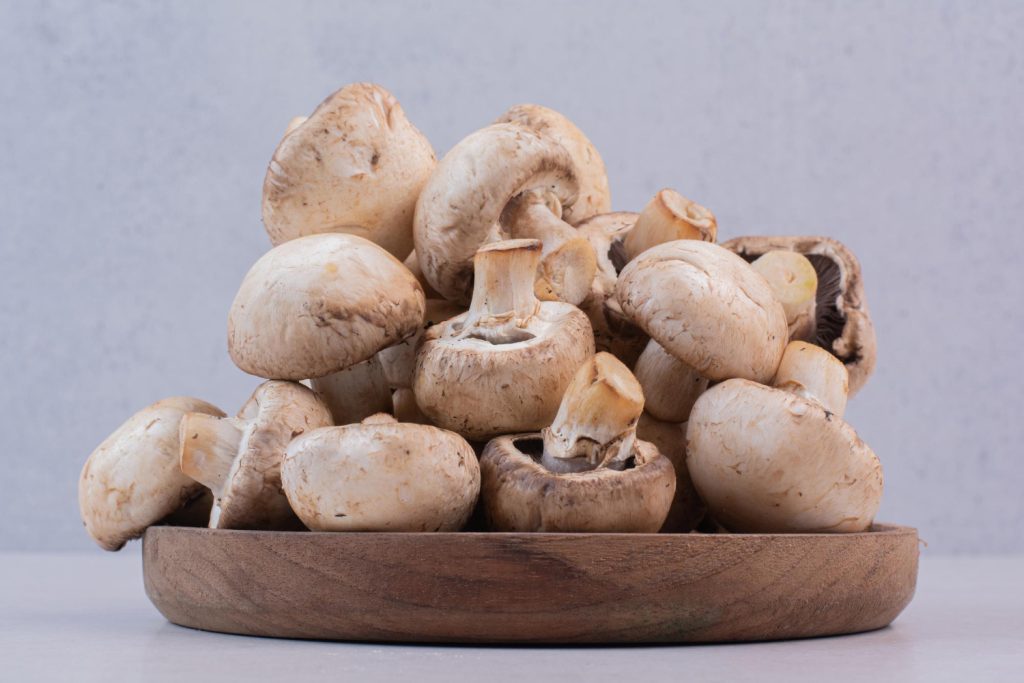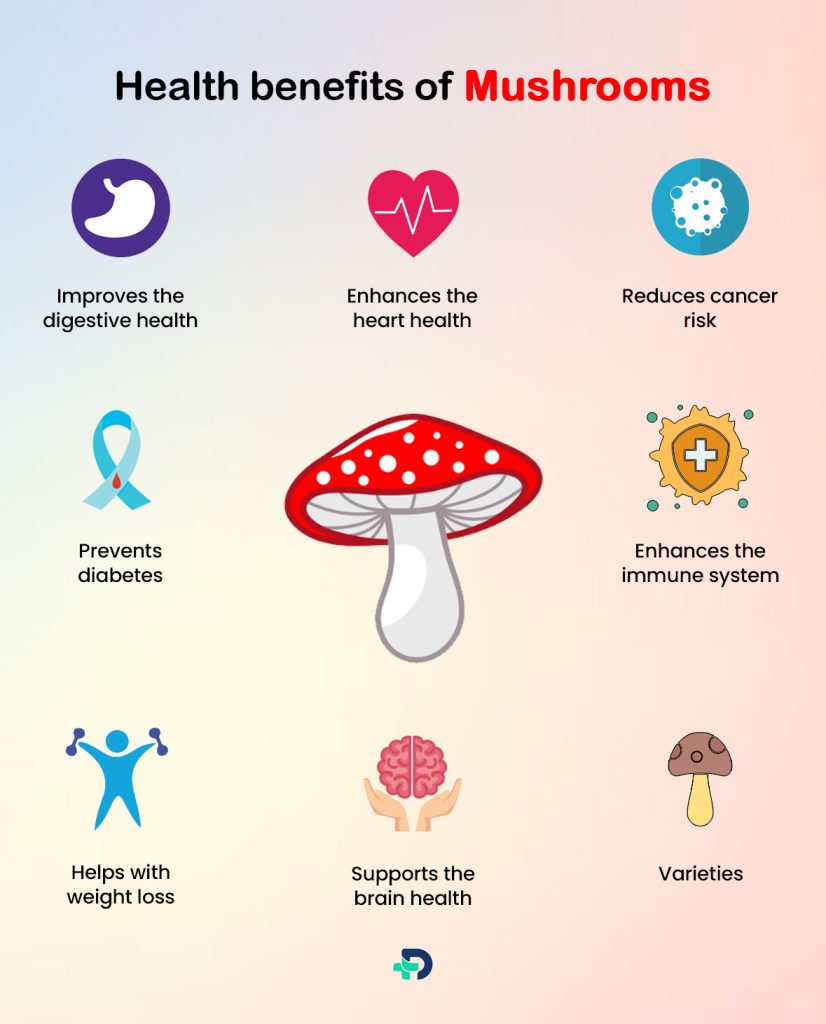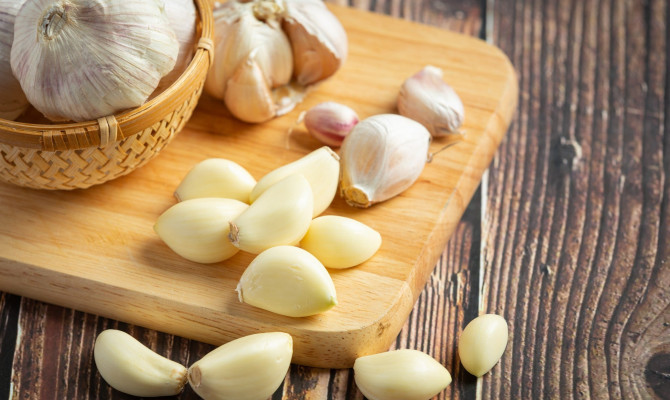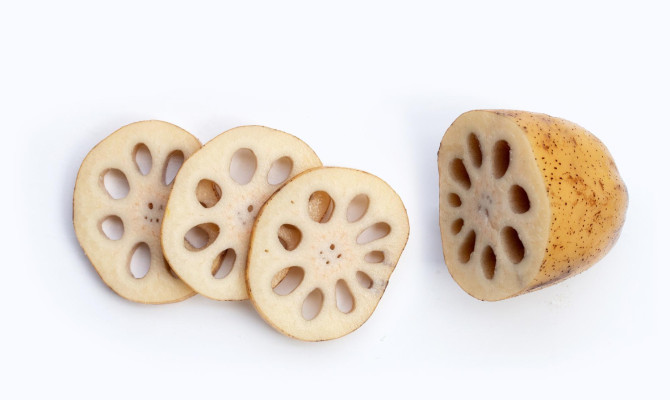Mushrooms: Nutritional Delicacies with Health Benefits and Cautions

- Mushrooms
- 30 Aug 2023
Introduction
What are Mushrooms?
Mushrooms are eatable fungi that are a different kingdom (group) from that of plants and belong to the Agaricaceae family. It is not a vegetable, but people often consume them as vegetables. The Mushroom has a stem, cap, and gill on the cap’s base. The gill generates spores that help the fungus to increase on the ground surface. There are numerous types of mushrooms, but only a few are edible and non-poisonous. Apart from being low-calorie and high-fiber, edible mushrooms have many health benefits that make them a popular choice for most people around the globe. Several mushrooms have a pleasant tangy aroma which some even use as poultry or meat alternatives. 1Introduction | Researched based study from National Institutes of Health
The article will explore Mushroom’s nutrition, health benefits, side effects, risks, interactions, and some tips to include in the diet.
Here are some facts about Mushrooms
- Botanically white mushrooms are called Agaricus bisporus.
- In the United States, white mushrooms are the most popular and widely consumed variety.
- Globally, white mushrooms are the most cultivated mushrooms. 2Facts | Researched based study from National Institutes of Health

Nutrition
Nutritional value of Mushrooms
96 grams of white mushrooms consists of the following nutrients-
- Calories- 21
- Fiber- 1 gm (gram)
- Fat- 0 gm
- Protein- 3 gm
- Carbohydrate- 3 gm
- Selenium- 16 % DV (Daily value)
- Phosphorus- 12 % DV
- Vitamin D- 33% DV
- Folate- 4% DV 3Nutrition | Researched based study from FoodData Central
Percentage daily value or % DV is the amount of particular nutrients an individual needs daily. The % DV is calculated taking into consideration the 2000-calorie diet.
Bioactive compounds in Mushrooms:
Caroteinoid
- It is a natural pigment found in plants, vegetables, fruits, and mushrooms
- It has detoxifying properties and prevents the body against cell damage
Flavonoids
- It is a natural compound found in vegetables, fruits, and mushrooms
- It has antioxidant, anti-tumor, and antiviral properties
Quinolones
- It is a natural compound found in edible mushrooms
- It helps in inhibiting the bacterial growth
Terpenoid
- It is a natural substance found in eatable mushrooms
- It has anti-tumor, anti-inflammatory, antimicrobial, and detoxifying (antioxidant) properties. 4Bioactive compounds | Researched based study from ScienceDirect
Benefits

Health Benefits of Mushrooms
Mushrooms have the following health benefits-
- Improves the digestive health
- Enhances the heart health
- Reduces cancer risk
- Prevents diabetes
- Enhances the immune system
- Helps with weight loss
- Supports the brain health
Improves the digestive health
- Nutrients in mushrooms promote the growth of helpful bacteria.
- It normalizes the bowel movement and helps prevent the symptoms of constipation 1Health Benefits | Researched based study from National Institutes of Health
Enhances the heart health
- Nutrients in mushrooms viz; ergothioneine decreased total cholesterol levels in the body.
- It also lowered blood pressure and prevented fat deposits within the arteries.
- Research has shown that taking 16 grams of mushroom powder after a meal reduced the blood’s triglycerides level compared to those who did not take it. 6Health Benefits | Researched based study from National Institutes of Health
Reduces cancer risk
- Nutrients in Mushroom prevent abnormal cell growth in the body.
- Research has shown that choline, vitamin D, and selenium in mushrooms reduce the risk of several cancers, such as prostate, lung, and liver cancer. 7Health Benefits | Researched based study from National Institutes of Health
Prevents diabetes
- Polysaccharides and fibers in Mushrooms increase insulin sensitivity and enhance the body’s response to blood glucose.
- It decreases the risk of diabetes mellitus (high blood sugar) in individuals. 8Health Benefits | Researched based study from National Institutes of Health
Enhances the immune system
- Antioxidants in mushrooms protect the body from cell destruction by neutralizing the harmful substances in the body.
- It lowered the risk of chronic diseases. 9Health Benefits | Researched based study from Nature
Helps with weight loss
- Nutrients in mushrooms keep the stomach full and help reduce calorie intake in subsequent meals.
- Research has found that people who replaced twenty percent of meat with mushrooms and exercise have better weight loss than those who consumed only meat. 10Health Benefits | Researched based study from National Institutes of Health
Supports the brain health
- Nutrients in mushrooms improve the memory and thinking ability
- Research studies have found that it decreases the risk of Parkinson’s and Alzheimer’s disease. 11Health Benefits | Researched based study from Wiley Online Library
Varieties
There are numerous varieties of mushrooms, but only a few are eatable. Some types of eatable mushrooms that one can find in groceries are as follows-
- Oyster- fan-shaped Mushrooms
- Maitake- Spongy mushroom
- Porcini- reddish brown cap with thick stem
- Shiitake-dark brown cap with milky white stem
- Enoki- Caps with small white stems
- Cremini- hard and dark-colored Mushroom
- Chanterelle-Trumpet shaped Mushroom 12Varieties | Researched based study from ScienceDirect
Side Effects
Side Effects of Mushrooms
Most people can safely consume the edible Mushroom. However, people with a mushroom allergy might encounter the subsequent adverse effects-
- Bloating (in excess amount)
- Stomach pain
- Urticaria
- Itching
- Swelling in lips, throat, and mouth
- Shortness of breath 13Side effects | Researched based study from National Institutes of Health
Mushroom Poisoning
Although mushrooms make a delicious side dish in meals, one must be alert about the type of Mushroom one is preparing. Some species of mushrooms, such as grayish-brown mushrooms (Grifola frondosa), sulfur shelf mushrooms, and oyster mushrooms, cause mushroom poisoning that can sometimes be fatal. Poisonous mushrooms contain amanitin toxin that causes poisoning.
Some symptoms of mushroom poisoning a few hours after poisonous mushroom consumption are as follows-
- Increased saliva
- Dilation of the eye’s pupil
- Nausea and vomiting
- Teary eyes (water from eyes)
- Excessive sweating
- Diarrhea
- Confusion
- Trouble breathing
- Anxiety
- False perception of things (Hallucination)
Always call the emergency number or rush to the emergency medical room if one experiences any of the above mushroom poisoning symptoms.
- Mushrooms contain coprine that interacts with Antabuse (alcohol disorder medication). So, one must speak to the doctor regarding mushroom intake while in Antabuse treatment
- Moreover, wild mushrooms can cause liver and kidney problems, and some can even cause cancer. 14Side effects | Researched based study from National Institutes of Health
Selection & Storage
Selection and Storage of Mushrooms
- One can buy dried and canned mushrooms from supermarkets and food stores throughout the year, but the seasonal wild mushrooms are available only in summer and autumn.
- While selecting raw mushrooms, buy ones that are dry without any blemishes.
- One can store mushrooms in the refrigerator in an open vessel for four to five days.
- Avoid washing and trimming the mushrooms until ready to cook. 1Selection and Storage | Researched based study from National Institutes of Health
Preparation
How to Prepare Mushrooms?
- Wash the mushrooms in running water to avoid any contamination.
- One can also trim the stalk’s end for extra precaution.
- Then cut the mushrooms into small cubes or slices and add to the favorite recipe of your choice.
- Although one can eat mushrooms raw, one must always prefer to cook and eat to get the most nutrients out of it.
Tips
Tips to include Mushrooms in Diet
- Cut mushrooms into small pieces, roast them with thyme and rosemary, and enjoy it as a snack.
- Add sliced Mushroom as toppings to salads to make them healthier
- Add sliced cooked mushrooms to soups and stews
- Add small cubes of mushrooms to pizzas and omelets to enhance the taste
- Grill the marinated mushrooms of garlic, onion, and olive oil, and have it as a side dish
- One can also add grilled mushrooms to burgers and sandwiches and relish the taste
Interactions
Drug Interactions
Amphetamines
- Amphetamines are stimulant medications to hasten information transfer between the brain and body.
- Taking mushrooms and amphetamines together might elevate blood pressure and increase the risk of heart issues.
Antidepressants
- Taking mushrooms and antidepressants together might increase the risk of body convulsions and heart problems. 15Interactions | Researched based study from ScienceDirect
Any feedback on this article?
 This Articles content was accurate
This Articles content was accurate Very Informative Article
Very Informative Article I have a question or a comment
I have a question or a comment
 This article contains inaccurate content
This article contains inaccurate content This article was not helpful
This article was not helpful I have a question or a comment
I have a question or a comment
We appreciate your helpful feedback!
Checkout our social pages
References
-
National Institutes of Health
Introduction | Selection & Storage
-
National Institutes of Health
Facts
-
FoodData Central
Nutrition
-
ScienceDirect
Bioactive compounds
-
National Institutes of Health
Health Benefits/ Digestive health
-
National Institutes of Health
Health Benefits/ Heart health
-
National Institutes of Health
Health Benefits/Cancer
-
National Institutes of Health
Health Benefits/Diabetes
-
Nature
Health Benefits/Immune response
-
National Institutes of Health
Health Benefit/Weight loss
-
Wiley Online Library
Benefits/Brain health
-
ScienceDirect
Varieties
-
National Institutes of Health
Side effects
-
National Institutes of Health
Side effects
-
ScienceDirect
Interactions




































